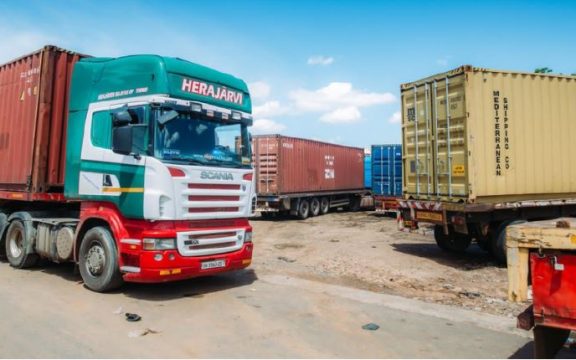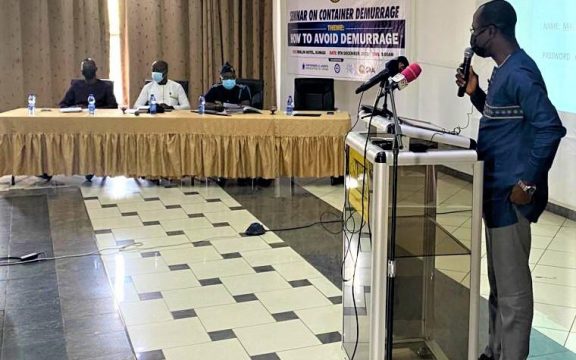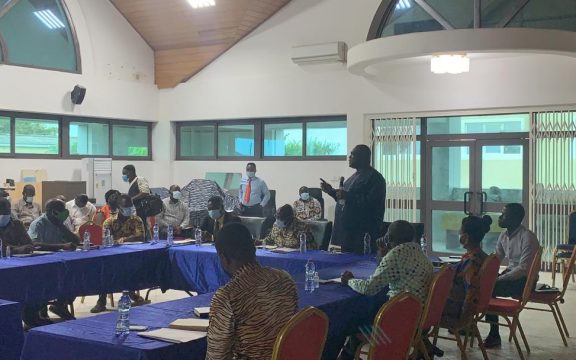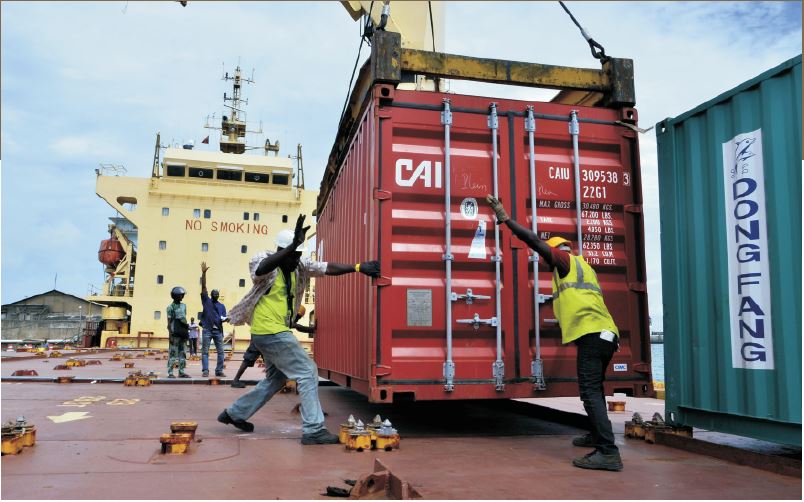 Background
Background
The coronavirus (COVID-19) pandemic impacted economic growth in Africa. In 2020, Southern Africa registered the sharpest decline in Gross Domestic Product (GDP) growth rate in the continent, at minus seven percent. Southern and Central Africa were the regions that suffered the most in that year. However, projections conducted in December 2020 showed that Africa’s economy would recover in 2021 and 2022, following the impact of the pandemic, with the regional real GDPs growing significantly. Overall, North Africa would witness the largest expansion, by four and six percent in 2021 and 2022, respectively.
 Despite the current global challenges due to the COVID-19 pandemic, Africa today is still regarded as the next frontier for investments. The continent stands as one of the fastest growing regions of the world. Six of the ten fastest growing economies are in Africa. In a seeming season of sustained global economic crisis, African economies have remained resilient.
Despite the current global challenges due to the COVID-19 pandemic, Africa today is still regarded as the next frontier for investments. The continent stands as one of the fastest growing regions of the world. Six of the ten fastest growing economies are in Africa. In a seeming season of sustained global economic crisis, African economies have remained resilient.
Trade is critically important to economic development. Right now, Africa has about 2 percent of all world trade according to the WTO Report 2019, which is hard to believe when you think about all of the tremendous resources that they have – oil, diamonds, gold and not to mention all the agricultural products such as coffee, tea, cocoa.
To think that Africa still only has two (2) percent of world trade is really incredible. But the power of trade is that if the Africans were able to increase their share of world trade from two (2) to three (3) percent, that 1 percentage increase would actually generate about $70 billion of additional income annually for Africa, or about three times the total development assistance Africa gets from the entire world.
According to UNCTAD, Africa’s GDP has grown by 5% a year – one percentage point higher than global growth over the last 10 years and the continent is closely tied in to the global value chain (GVC). However, Africa remains primarily confined to the role of raw material supplier and unable to transition to that of a production platform. It runs a trade deficit, with imports – mostly of manufactured goods – exceeding exports, 80% of which are primary products:
Africa’s Maritime Sector and the Economy
Maritime transport is the backbone of international trade and the global economy. Around 80 per cent of global trade by volume and over 70 per cent of global trade by value are carried by sea and are handled by ports worldwide. These shares are even higher in the case of most developing countries.
The contribution of the maritime industry to the economy of Africa is huge representing over 80% of the Africa’s trade. Africa’s share of global trade still remains very weak at about 2.3% according to the UNCTAD.
The export of raw materials from Africa to the Far East and other continents is mainly through shipping. Over 90% of Africa’s import trade is by shipping and this has a huge impact on the value chain operations in Africa. Tax revenue remains the most important source of domestic financing in African countries. Most governments in Africa rely on trade taxes such as levies customs and other fiscal duties on imports as a source of revenue for economic development.
The maritime industry particularly shipping has the potential in playing a significant role in Africa’s future development. The Maritime Industry in Ghana is by far, the most critical sector and is key to the development of the nation’s economy. The Industry accounts for over 80%, as a share of customs collection and the highest contributor to the nation’s revenue base through taxes and levies on imported and exported products.
For the past decades, trade growth has been lackluster in Africa. Compared to the world average growth rate, Africa underperformed. Excluding oil, exports from most African countries have declined in the last decade mainly because of downward trend for many commodities and supply constraint.
Over the last decade, maritime experts have bemoaned the rising number of challenges within the maritime sector which should be addressed with the aim of ensuring efficient logistics and supply chain operations.
Impact of Covid on Africa’s Maritime Economy
COVID-19 has negatively impacted Africa according to UNCTAD Review of Maritime Transport, 2020. In the second quarter of 2020, UNCTAD estimated the drop in Africa’s exports at 35% and the drop in imports at 25%. By July 2020, there were some improvements, but the numbers still pointed to double-digit drops of 17% for imports and 21% for exports.
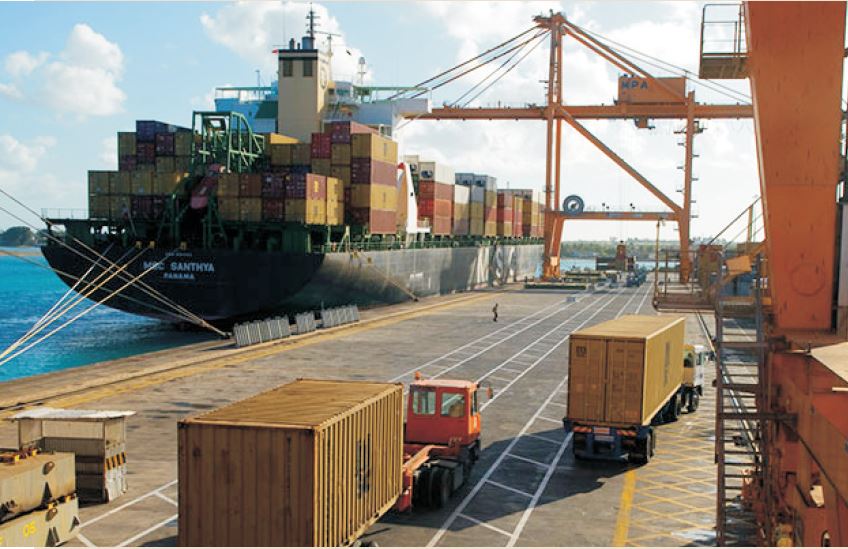 By late June 2020, the drop in the number of ship calls in Sub-Saharan Africa stood at 9.7% while the drop in container ship calls stood at 12.7%. The impact on bulk shipping was less pronounced. Port calls by dry bulk carriers declined by 7.7% while calls by wet bulk carriers was less affected, falling by 1.4 % only.
By late June 2020, the drop in the number of ship calls in Sub-Saharan Africa stood at 9.7% while the drop in container ship calls stood at 12.7%. The impact on bulk shipping was less pronounced. Port calls by dry bulk carriers declined by 7.7% while calls by wet bulk carriers was less affected, falling by 1.4 % only.
Like in other regions, digitalization is recognized as key to navigating the COVID-19 crisis, hence capacity-building in this area is required. However, a “readiness gap” in the maritime sector’s automation and technology levels puts African countries at a disadvantage. Maritime transport in Africa needs to address challenges facing innovation and technology, infrastructure quality, regulation and governance, human capital and skills, as well as business and investment.
Challenges of Africa Maritime Sector
Presently, African ports remain largely outside several global trends. These trends, however, can have a positive impact on the economies of Africa. At the time when main ports in Asia have the infrastructural capacity to receive 8,000 TEU vessels, West and Central Africa sub-region ports are unable to receive vessels in excess of 2,500 TEUs.
Also, the introduction of very large container vessels has contributed to a widening gap between the few large efficient ports, which benefit from economies of scale of these vessels and most ports in developing countries, which will increasingly have to rely on feeder services.
Africa’s ports have faced rapid traffic growth in the last five years (more than 12 percent according Drewry). It is the right time to tackle major port reforms since traffic forecasts are expected to grow at a slower pace until 2010 (Drewry, 2005).
Improvement of port management is a prerequisite for further development of the maritime sector in Africa (WCA). For shipping lines, port turnaround time in ports has become an increasingly important factor to decide to call in any port of the world. It is estimated that one extra day at a port cost more than US$ 35,000 to a shipping line for a 2,200 TEU vessel.
Without improved port efficiency and regional integration, many ports of the world will become increasingly marginalized, served by feeders. Shippers will have to bear higher maritime transport tariffs.
Without improved port efficiency, several coastal countries in West and Central Africa could become “de facto” landlocked, having to bear approximately the same cost as a landlocked country.
To summarize the challenges of Africa’s maritime sector which when addressed could have positive impact on African economies are;
- Poor Export Capacity
- Port trade cost structure
- Inadequate port infrastructure to support growth of the maritime shipping sector
- Inefficiency in port operations
- Lack of improved port management capabilities.
- Poor implementation of maritime legal and policy frameworks
- Regional Integration
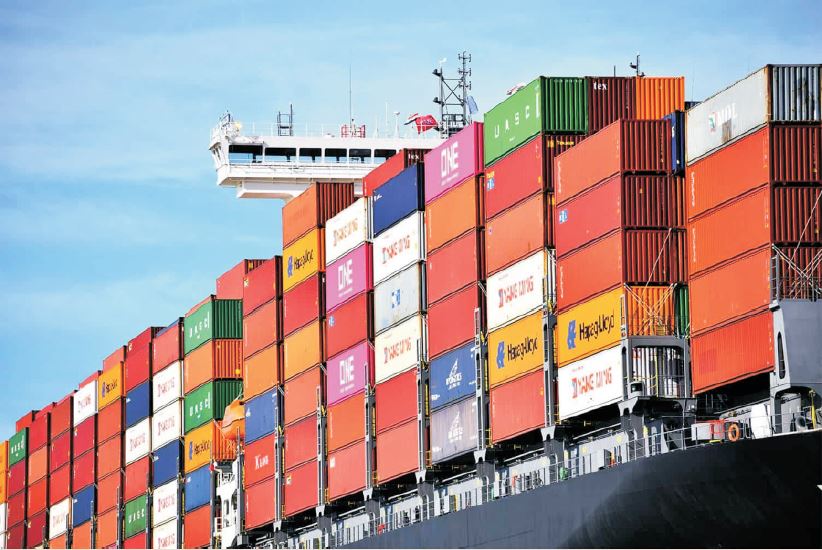 Conclusion
Conclusion
The way forward is a need for reforms in the maritime sector of Africa. In particular, the attainment of competitiveness along the entire logistics and supply value chain.
The main objectives of upcoming reforms in the maritime transport industry and port sector in African countries should be aimed at the following;
- Institutional reform- carrying out cost benefit analysis of current port management and efficiency in countries facing very high port charges and high maritime transport rates.
- Fostering private sector participation both to provide investment for new installations and equipment, and to transfer technical know-how and more efficient terminal management.
- Facilitating procedures and controls in ports, such as procedures affecting turnaround time, dwell time and handling cost, otherwise port attractiveness is seriously limited. The introduction of community- based IT system may help in this regard.
- Improving port access to ultimately develop a multimodal transport system. Areas around ports are usually congested, and investing in road infrastructure to improve port access may have a positive impact on city economic activities and port efficiency.
- Facilitating transport on the main trade corridors from port to landlocked countries.
- Increasing competition among shipping lines in countries, when informal barriers to market entry or collusion still prevails.
- Developing knowledge sharing and collaboration between ports and countries on current port reforms in Africa. The Port Management Associations in Africa could become a suitable platform for these exchanges.
- Reviewing maritime policies in various regions of the world to adopt adequate maritime policies in the Africa region.
- Efficient implementation of trade facilitation measures to boost trade and the capacity of the maritime sector.





